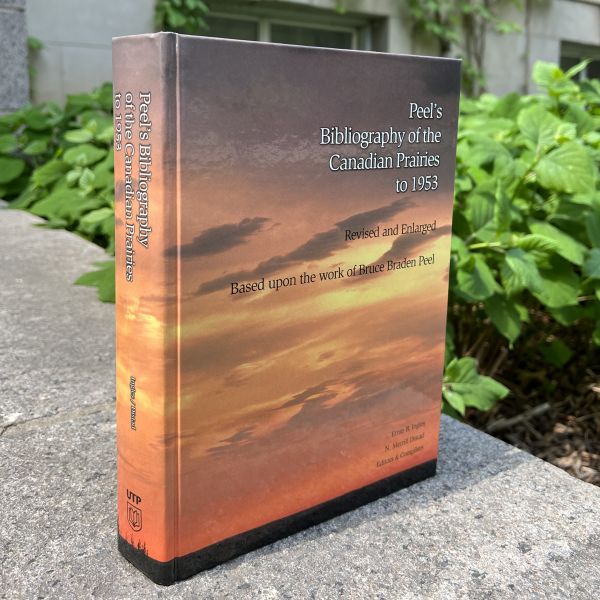About Peel's Prairie Provinces
Peel's Prairie Provinces is a digital collection of historical records, books, pamphlets, postcards, and other materials representing the diverse cultures and peoples that live in the Canadian Prairies, defined broadly as the area within the provincial boundaries of Alberta, Saskatchewan, and Manitoba, the territories of several numbered treaties, and the traditional lands of many Indigenous peoples in this region.
 Peel's Prairie Provinces was first launched as a digital extension of earlier bibliographic work begun by University of Alberta Librarian Bruce Peel, first published as Peel’s Bibliography of the Canadian Prairies (1953; University of Toronto Press), and which focused primarily on the early European settlement and colonization of the Prairies. We continue to build on this legacy by adding new and diverse materials to this living collection of our shared history, working to broaden the scope of materials to include Indigenous and marginalized voices. The University of Alberta Library is committed to the ongoing curation and expansion of this important resource, and to ensuring that it reflects the diversity of peoples and experiences that enhabit these lands.
Peel's Prairie Provinces was first launched as a digital extension of earlier bibliographic work begun by University of Alberta Librarian Bruce Peel, first published as Peel’s Bibliography of the Canadian Prairies (1953; University of Toronto Press), and which focused primarily on the early European settlement and colonization of the Prairies. We continue to build on this legacy by adding new and diverse materials to this living collection of our shared history, working to broaden the scope of materials to include Indigenous and marginalized voices. The University of Alberta Library is committed to the ongoing curation and expansion of this important resource, and to ensuring that it reflects the diversity of peoples and experiences that enhabit these lands.
